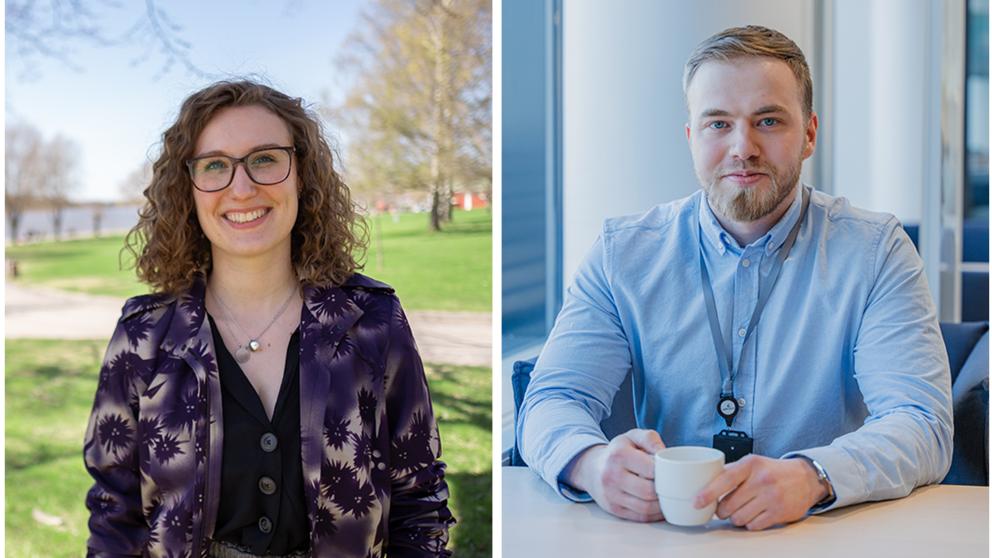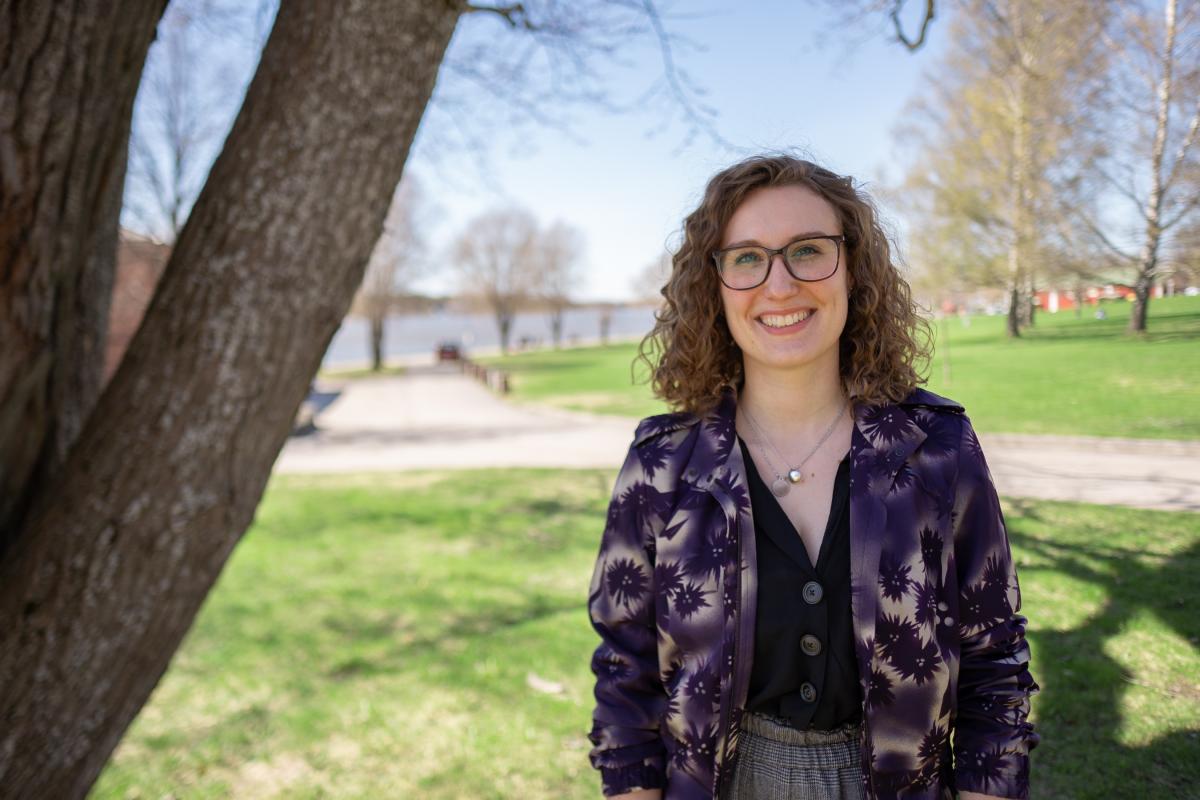
Lauri Laatikainen and Tiphaine Delecour have both done their theses for different organisations, Laatikainen for Wärtsilä and Delecour for the cities of Seinäjoki and Oulu and two different non-profit organisations.
Delecour is studying in the master’s programme in Strategic Business Development. She is graduating this summer.
– My thesis has been returned, and I have just received the grade, so all is on track for me to graduate on schedule.
Her thesis topic was strategic learning in program evaluation for nonprofit organisations. She chose this topic because the studies included strategic learning in classrooms, but regarding for-profit organisations, so she thought that there might be some unexploited potential by studying the topic but in a nonprofit context.
– I decided on this topic and field of study because I know that nonprofits need all the support possible to develop their program and maintain them at high standards. So, I thought that if I could provide a few nonprofits with a good tool they could use in practice to evaluate how well their program’s actions fit the needs or goals, I would be contributing to something concrete.
Laatikainen graduated this spring with a master's degree in Industrial Systems Analytics. He applied for thesis employee position in several companies and finally ended up at Wärtsilä. The company found several suitable topics for an engineering student, and the topic of the thesis was the life cycle assessment of Wärtsilä's V-SOx scrubber.
– My decision to choose this position was influenced by the fit between the topics offered by the companies and my studies, as well as by personal and practical factors.
Doing a thesis for a company increases motivation
Doing a thesis for a company brings its own spice to the work and often also adds pressure. Companies have certain expectations in terms of timing and targets, which the student must do their best to meet. Often, however, the deadlines and targets set provide much-needed extra motivation.
– Working for a company on a thesis made the work more meaningful. Knowing that if the work was successful and the objectives were met, the results could be of benefit to the company in many ways, it gave extra motivation to the thesis work, says Laatikainen.
– To me, doing the research in cooperation with organisations made it much more interesting and rewarding. Every time I was getting down to the thesis, which all students know can be challenging at times, I knew that it was for a concrete goal, I knew I was going to produce something that would be useful for the organisations, Delecour continues.
Delecour worked on her thesis independently but kept in regular contact with her supervisor in the organisation, who provided her with support for her thesis work.
– Keeping in touch with my supervisor was made very easy by my supervisor himself. He was always available and having a kind word for me and my process. In the beginning, I remember getting stuck on my theoretical approaches and he knew what to say to redirect me in the good direction, we had a quick call and then all went well afterwards.
For Laatikainen, the objectives, resources, and network of contacts for the thesis work came from Wärtsilä. With the university supervisors, the focus was on the technical aspects of the work, such as validating the life cycle inventory data and performing LCIA calculations.
– When problems occurred, we communicated quickly and efficiently, which helped us to solve the problems. For this, I would like to thank Wärtsilä and the university supervisors for their efforts and support. The views between the university and Wärtsilä supervisors were largely in agreement.
For Wärtsilä, thesis supervision is more than familiar, as the company has several thesis workers in Finland every year. In the case of Laatikainen, the company was looking for a student who could do their thesis and at the same time work in the unit as a paternity leave replacement.
– My role was to act not only as Lauri's thesis supervisor, but also as a manager. We had weekly meetings where we kept each other informed about the progress of the thesis. In the beginning, my role was also to introduce Lauri to the organisation and the key people who contributed to the thesis, says Carina Nikko, Director, Development & Quality, Wärtsilä, who acted as supervisor.
Into academia or into work?
Getting a foot in the door can make a big difference to future job prospects. For Laatikainen at least, working on his thesis for the company paid off, as he was able to get a permanent job at Wärtsilä after the thesis contract ended.
– Doing a thesis for the company certainly had a positive effect on getting a job. I feel that the thesis process developed my skills in a very holistic way. I also realised how important it is to be able to simplify and present complex issues clearly.
Laatikainen wants his career path to continue, but he is also interested in an academic path and is considering applying for a doctoral degree.
Delecour agrees that doing the thesis for organisations was certainly beneficial for future employment opportunities.
– I think doing the project for a company is a great chance at developing one’s network! I live in Tampere, but have now, thanks to the research, grown my network in Oulu, Porvoo and Seinäjoki. Keeping in touch and meeting up with the organizations is important if I would be searching for a job later on.
Future in Finland
Delcour is originally from France and first came to Finland as an au pair but stayed to study here.
– I chose to come to Finland because of some Finnish friends I had met while in Erasmus exchange. They were talking so highly of their country and how they missed their midnight sun, cold winter, and forests. I decided to go back to school in summer of 2018 and went to TAMK, I graduated in December 2020 and in 2022 decided to do a master’s degree.
Delecour applied for two other universities for a master's degree, but University of Vaasa was her top choice because of the interesting course content. She has been happy with her choice.
– The teachers, classmates and university facilities have been very supportive.
Delecour is planning to stay in Finland in the future.
– This is where I feel like home, it feels like I belong here, and I know having studied here helps. It helped with integration, knowing the culture, and finding friends. Another dream is to evolve in a career where I can use my degree, knowledge, and interest fully. I have already gotten opportunities to do just that, so I have a good feeling that dreams and plans are well underway.
